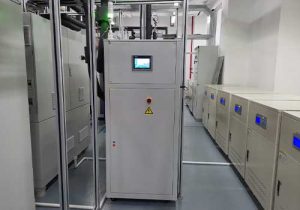industrial heating manufacturers
What Are Industrial Heating Manufacturers?
Industrial heating manufacturers are companies that design, produce, and supply heating equipment for industrial applications. These manufacturers develop a wide range of heating solutions to meet the demands of industries requiring precise temperature control, energy efficiency, and durability.

Types of Industrial Heating Systems
Industrial heating manufacturers produce several types of heating systems, each suited for specific applications:
Electric Heaters
Resistance Heaters: Use electric current to generate heat (e.g., cartridge heaters, band heaters).
Infrared Heaters: Emit radiant heat for surface heating (e.g., drying, curing).
Induction Heaters: Use electromagnetic fields to heat conductive materials (e.g., metal forging).
Gas & Fuel-Based Heaters
Combustion Heaters: Burn natural gas, propane, or oil for high-temperature applications.
Thermal Fluid Heaters: Circulate heated oil or glycol for uniform heat distribution.
Process Heating Systems
Industrial Ovens & Furnaces: Used for baking, annealing, and heat treatment.
Heat Exchangers: Transfer heat between fluids in chemical and power plants.
Key Technologies in Industrial Heating
Modern industrial heating systems incorporate advanced technologies for better performance:
Smart Controls: IoT-enabled temperature regulation for precision and energy savings.

High-Performance Materials: Ceramic, quartz, and silicon carbide for extreme conditions.
Energy-Efficient Designs: Heat recovery systems and low-emission burners reduce operational costs.
Customization: Manufacturers offer tailored solutions for unique industrial requirements.
How to Choose an Industrial Heating Manufacturer
When selecting a manufacturer, consider the following factors:
Application Requirements
Temperature range, heating uniformity, and response time.
Compatibility with the industrial environment (e.g., corrosive, explosive).
Energy Efficiency & Sustainability
Low power consumption, heat recovery options, and emissions control.
Compliance & Certifications
Standards such as ATEX (explosive atmospheres), UL, and IEC.
Maintenance & Support
Availability of spare parts, technical support, and warranty.
Cost & ROI
Initial investment vs. long-term energy savings and durability.

Applications of Industrial Heating Systems
Industrial heating equipment is used across multiple sectors:
Metal Processing: Heat treatment, forging, and welding.
Plastics & Rubber: Injection molding and extrusion.
Food & Beverage: Baking, pasteurization, and drying.
Chemicals & Pharmaceuticals: Reactor heating and distillation.
Semiconductors: Wafer processing and soldering.
Future Trends in Industrial Heating
Electrification & Decarbonization: Shift toward electric heating to reduce fossil fuel dependency.
AI & Automation: Predictive maintenance and real-time optimization.
Hybrid Heating Systems: Combining multiple technologies for efficiency.
Conclusion
Industrial heating manufacturers play a crucial role in providing reliable and efficient thermal solutions for various industries. By understanding the types of heating systems, key manufacturers, and selection criteria, businesses can optimize their processes for better performance and sustainability. Future advancements in smart controls and energy-efficient designs will further enhance industrial heating technologies.
Related recommendations
compression chillers
523Compression Chillers: An In-Depth Analysis Definition of Compression ChillersCompression chillers are mechanical systems that use the vapor compression refrigeration cycle to transfer heat from...
View detailswater cooled chiller function
291The Function of Water - Cooled Chillers: A Comprehensive ExplanationWater - cooled chillers play a pivotal role in numerous industrial and commercial settings, providing reliable and efficient co...
View detailsCan’t the Temperature of the Industrial Chiller Drop?
1480Can't the Temperature of the Industrial Chiller Drop? Generally speaking, the cooling effect of industrial chillers is relatively good, but some users have reported that the temperature canno...
View detailswater chiller cooling system
402IntroductionIn the realm of temperature control, water chiller cooling systems stand as a cornerstone for maintaining ideal thermal conditions across numerous applications. From providing comfort...
View details
 LNEYA Chiller
LNEYA Chiller






HelloPlease log in